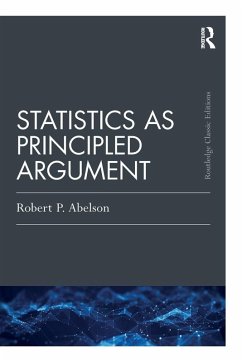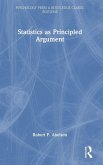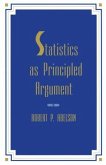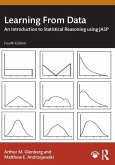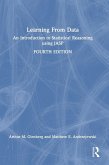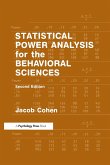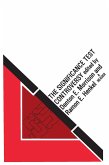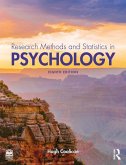In Statistics as Principled Argument, first published in 1995, delved into the often-dismissed problems of interpreting quantitative data and then presented them in the context of a coherent story about one's research. This classic edition offers a new introduction situating Abelson's work through a contemporary lens.
"Everyone doing research or planning to do research should read this book. You will be surprised at how much you will learn." - Psychological Science
"The book itself is the best demonstration of the validity of Abelson's thesis. It proves that statistical issues can be addressed in an articulate, interesting, entertaining and persuasive way." - British Journal of Mathematical & Statistical Psychology
"Abelson has, in brief, produced a thought-provoking synthesis of the woes and promises of much modern sychological statistics." - British Journal of Psychology
"The book itself is the best demonstration of the validity of Abelson's thesis. It proves that statistical issues can be addressed in an articulate, interesting, entertaining and persuasive way." - British Journal of Mathematical & Statistical Psychology
"Abelson has, in brief, produced a thought-provoking synthesis of the woes and promises of much modern sychological statistics." - British Journal of Psychology
"Everyone doing research or planning to do research should read this book. You will be surprised at how much you will learn." - Psychological Science
"The book itself is the best demonstration of the validity of Abelson's thesis. It proves that statistical issues can be addressed in an articulate, interesting, entertaining and persuasive way." - British Journal of Mathematical & Statistical Psychology
"Abelson has, in brief, produced a thought-provoking synthesis of the woes and promises of much modern sychological statistics." - British Journal of Psychology
"The book itself is the best demonstration of the validity of Abelson's thesis. It proves that statistical issues can be addressed in an articulate, interesting, entertaining and persuasive way." - British Journal of Mathematical & Statistical Psychology
"Abelson has, in brief, produced a thought-provoking synthesis of the woes and promises of much modern sychological statistics." - British Journal of Psychology

